
Xi Jinping’s Four “Red Lines”: A Stark Warning to the United States
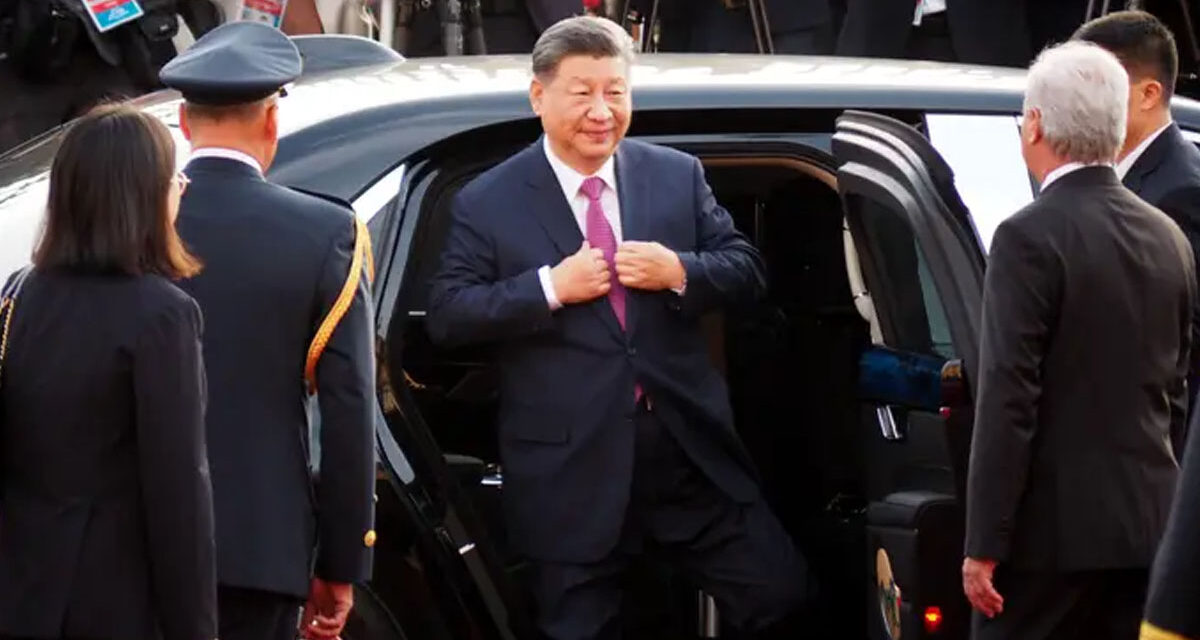
Chinese President Xi Jinping has issued a stark and unequivocal warning to the United States: there are boundaries Washington must not cross. During a meeting with President Joe Biden at the APEC Summit in Lima, Peru, Xi outlined four “red lines” that Beijing views as non-negotiable. These lines, described as the “most important guardrails and safety nets for China-US relations,” underscore the fragile and potentially explosive state of the relationship between the world’s two largest powers.
Xi’s unusually frank message comes as Beijing braces for a second Trump administration, which many expect will bring an even harder line against China. While the red lines themselves—Taiwan, democracy and human rights, China’s political system, and the country’s right to development—are not new, the tone and context of their delivery signal Beijing’s growing alarm. As Xi put it bluntly, these red lines “must not be challenged.”
The First Red Line: Taiwan
Taiwan has always been the most sensitive and dangerous issue in U.S.-China relations, and Xi made it clear that it remains his top priority. China views Taiwan as an inseparable part of its territory and has long vowed to achieve reunification, by force if necessary. Any move by the United States to support Taiwan’s independence—whether through arms sales, military cooperation, or diplomatic recognition—is considered a direct attack on China’s sovereignty.
“Taiwan’s independence and peace in the area are as irreconcilable as water and fire,” Xi declared, emphasizing that the stakes could not be higher. His warning comes against a backdrop of increasing U.S. support for Taiwan, including military aid packages and high-profile visits by American officials. Such actions are seen by Beijing as provocations that bring the region closer to the brink of conflict.
Consequences of Violation: If the U.S. were to cross this red line, the consequences could be catastrophic. Analysts warn of military escalation in the Taiwan Strait, with China potentially launching a blockade or even an invasion. The economic fallout would also be severe, as Taiwan is a global hub for semiconductor manufacturing. Any disruption to its output would send shockwaves through the global economy.
U.S. Response: While the U.S. has maintained a policy of “strategic ambiguity” on Taiwan for decades, recent actions suggest a shift toward more overt support. President Biden has reiterated that the U.S. opposes unilateral changes to the status quo, but Xi’s language indicates that Beijing sees no room for compromise. The possibility of a direct military confrontation looms larger than ever.
The Second Red Line: Democracy and Human Rights
Xi’s second red line touches on the U.S.’s long-standing criticisms of China’s human rights record and political system. From the treatment of Uyghur Muslims in Xinjiang to the crackdown on pro-democracy activists in Hong Kong, Beijing has faced intense international scrutiny. However, Xi warned that such criticisms amount to interference in China’s internal affairs and will not be tolerated.
“The U.S. side always says one thing but does another,” Xi said, accusing Washington of undermining trust between the two nations. He framed U.S. criticisms as part of a broader strategy to sow distrust and resentment within China.
Consequences of Violation: If the U.S. continues to sanction Chinese officials or push for international action on human rights, Beijing could retaliate with severe measures. These might include targeting American companies operating in China, restricting access to critical rare earth minerals, or even orchestrating cyberattacks on U.S. infrastructure.
U.S. Response: While the U.S. is unlikely to back down on human rights issues, there is a growing recognition that such actions come with risks. The Biden administration has sought to balance its moral stance with the need to avoid pushing China too far. Yet, the appointment of hardliners in past and potential future administrations suggests that tensions over this red line are unlikely to subside.
The Third Red Line: China’s Path and System
China’s political system, dominated by the Chinese Communist Party (CCP), is another core issue where Xi sees no room for compromise. He warned that any attempt to undermine the CCP’s authority or promote Western-style democracy in China would be viewed as an existential threat.
“This is about more than politics,” said Igor Khrestin, a managing director at the George W. Bush Institute. “It’s about the very legitimacy of the Chinese state as Xi and the CCP see it.”
Consequences of Violation: Efforts to weaken the CCP’s authority could provoke a harsh crackdown on foreign NGOs, tighter controls on foreign investments, or even expulsion of U.S. businesses from Chinese markets. Such moves would deepen the economic decoupling already underway and further isolate China from the West.
U.S. Response: While promoting democracy abroad is a cornerstone of American foreign policy, direct challenges to the CCP’s rule have been rare. However, U.S. policymakers have been vocal in their support for democratic movements in Hong Kong and Taiwan, which Beijing sees as direct challenges to this red line.
The Fourth Red Line: China’s Right to Development
Xi’s final red line revolves around China’s right to pursue economic growth and technological advancement. Beijing has bristled at U.S. actions to restrict its access to advanced technologies, such as semiconductors and artificial intelligence tools. These actions, described by Xi as part of a “small yard and high fence” strategy, are seen as attempts to contain China’s rise.
“A new Cold War should not be fought and cannot be won,” Xi warned, signaling Beijing’s determination to resist what it views as economic containment.
Consequences of Violation: Continued U.S. restrictions could push China to accelerate its efforts toward technological self-sufficiency. This would deepen the economic divide between the two nations and potentially lead to a full-scale trade war. China could also retaliate by restricting access to its vast consumer market or imposing tariffs on American goods.
U.S. Response: The U.S. has argued that its restrictions are necessary for national security, particularly to prevent Chinese military advancements. However, these measures have further strained relations, with Beijing accusing Washington of weaponizing trade and technology.
Will the U.S. Take These Lines Seriously?
The likelihood of the U.S. respecting these red lines depends on the balance between competing interests: maintaining its strategic dominance while avoiding a catastrophic conflict. On Taiwan, the U.S. has shown an increasing willingness to challenge Beijing, raising the risk of escalation. On human rights and democracy, Washington appears less likely to compromise, given bipartisan support for these issues. However, Xi’s warnings suggest that the cost of ignoring these red lines could be higher than ever before.
As Xi told Biden, “Containing China is unwise, unacceptable, and bound to fail.” Whether the U.S. heeds this warning or continues to push the boundaries will shape the future of global stability.
ACZ Editor: These are basically all of the ways that the U.S. has been harrassing China over the last several decades, we urge them to be more free, more democratic, and to leave Taiwan alone. And of course, to urge them to go in these directions we often restrict their access to critical materials. I believe that only the first is a “red line,” Xi is most anxious to absorb Taiwan. But the U.S. has interests there as well, perhaps even more than China does, given Taiwan’s importance in our industry.
As a prediction, I might say that Trump will use these “red lines” to poke at Xi, making sure that Xi understands that our principles will not be compromised, under any kind of threat from China.


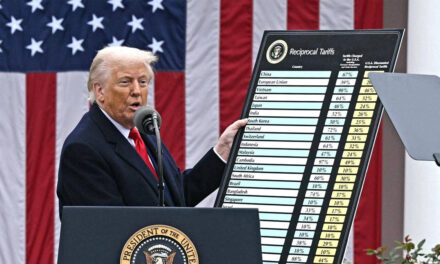
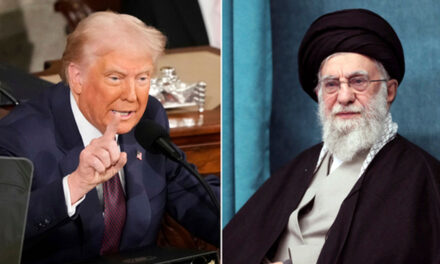


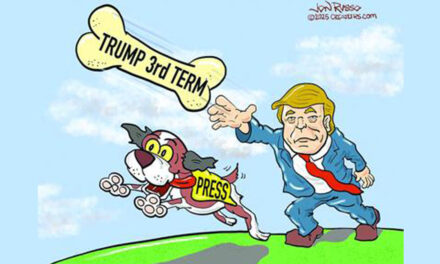








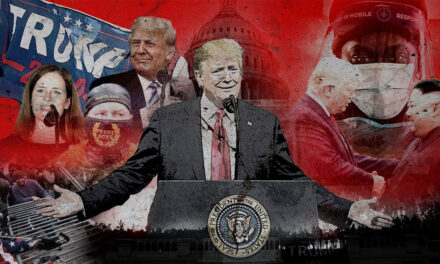







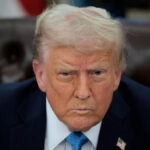




Up yours, Exie Jing-Ping.
Well hopefully the GOP will do the same thing to Xi as it does to most Americans – give him lip service and then do what you want.
We should have some red lines to give Xi too, such as: Freedom of navigation, no interference with the safety and security of our intellectual property and all private information, do not violate the UNCLOS agreement that China signed, no election interference’s, no currency manipulations.
And the attitude should be simple, :You cross our redl lines, we cross yours!